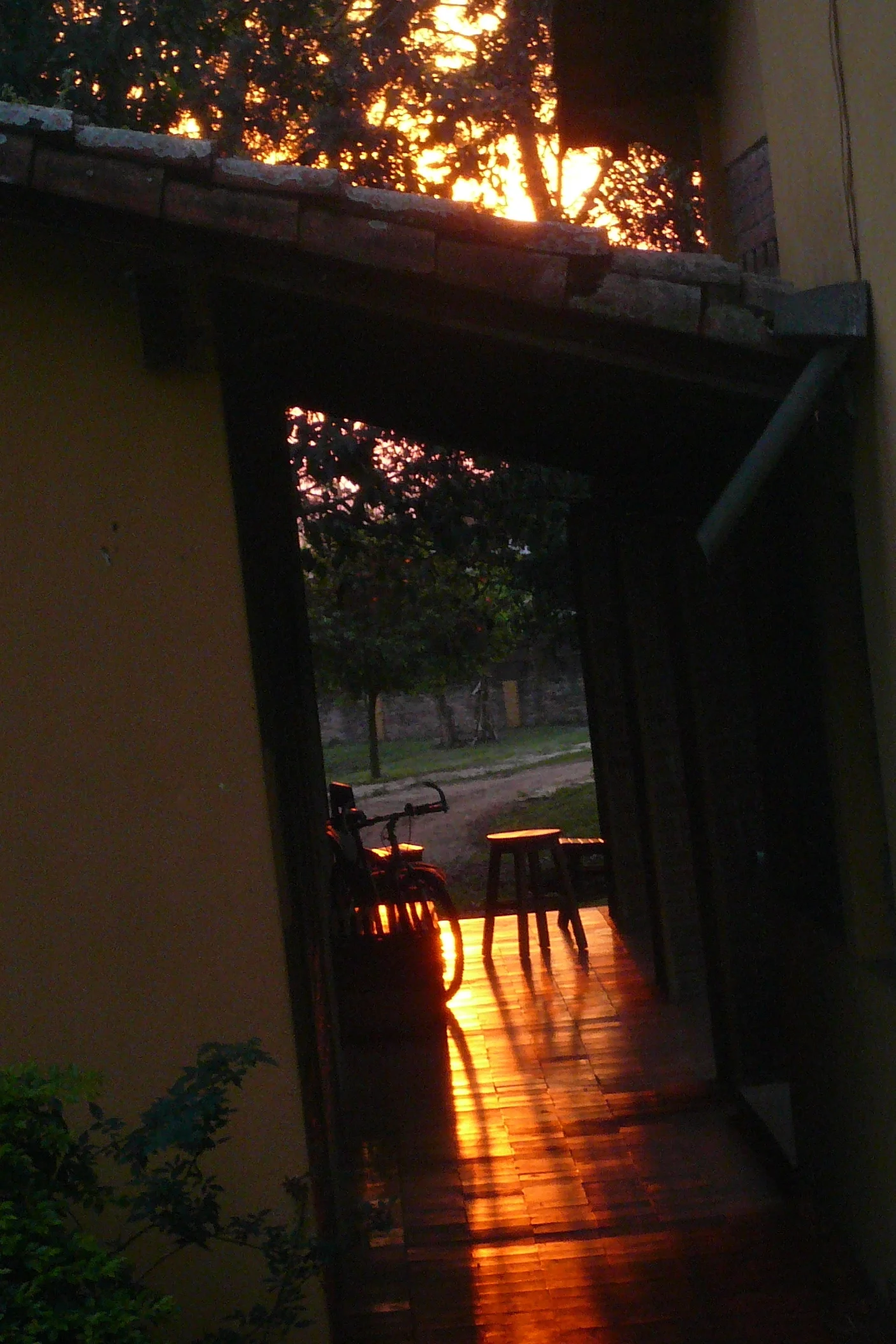The Latest Addition...
Since I came, there has been what seems to me to be quite a bit of birth and death around here. Of course that’s kinda a given on a farm. Pigs get old and die. Young cows lay down and never get up. And it’s normal to lose some of the babies in any herd or brood [the students can matter-of-factly quote statistics for me of what percentage are expected to die for each type of animal.] But for some reason it seems to effect me more here. Our latest arrival came late last Friday night. Juana had taken me to see the vaca as it was just starting to labor, and informed me that it would be safe for both mother and baby for her to be on her own for a couple of hours, but after that we would need to help. Some three or four hours later [time is very elastic in Paraguay] I came back out [after having waited anxiously for half an hour around the prescribed two hour mark, seeing that the birth wasn’t progressing, but not wanting to be pushy/disruptive/judgmental] and found Juana and Aida struggling to get the cow, which they had led to the milking area and which was now lying exhausted on the floor, barely wheezing and drooling blood, free from the head brace that was rather dramatically strangling it.
I’ll be the first to admit I got a little frantic. The girls were upset, but I was nearly panicked. From my perspective, this was not only a life in my stewardship [albeit indirectly], it was a valuable resource, part of the key to these girls’ future, their opportunities, their goals and success. From what I understood of their Spanish, the calf was dead, and now it looked like we were going to lose the mother too. It seemed like a pretty big deal.
Like I said, the girls were upset. But the difference between their state [and particularly the state of the boys and teacher who came to help a few minutes later] and mine was striking. The students weren’t exactly blasse, but they were far from agitated. It took me a while to realize that Prof. Vilhilio’s soothing but firm “tranquila, tranquila” was directed at me, not the dying animal. Later, some of the other students were joking that they wouldn’t ever expend that much effort for a cow…a horse, maybe…but not a cow.
The good news is both vaca and ternero are fine.
We’ve had two more calves born with minimal complications but one was dead when I went to feed them this morning. I almost got teary [it was so little and wet and I didn’t know if there was something I could/should have done to help it] but my companero simply affirmed, “si, muerte” and went on rinsing the feed bucket. If it follows the pattern, it will be 2 or 3 days before it’s buried.
Normally, I don’t know if any of these events would have carried much emotional intensity [though that may not be true, I still vividly remember trying unsuccessfully to save a baby goat who had been born by surprise in the middle of February.] But it’s almost as if I feel compelled to care more because it seems they couldn’t care less.
It’s made me wonder if disparate or misunderstood values intensify and heighten cultural differences without our even being aware of it. Perhaps some of what obviously unsettles or even upsets us, but being politically correct we term “just their culture,” wouldn’t turn out to be so upsetting if we could find what I imagine are the common values underneath it. Trouble is, it takes more than a business lunch, or a political summit, or a tourist visit, or perhaps a summer internship, to get there.




